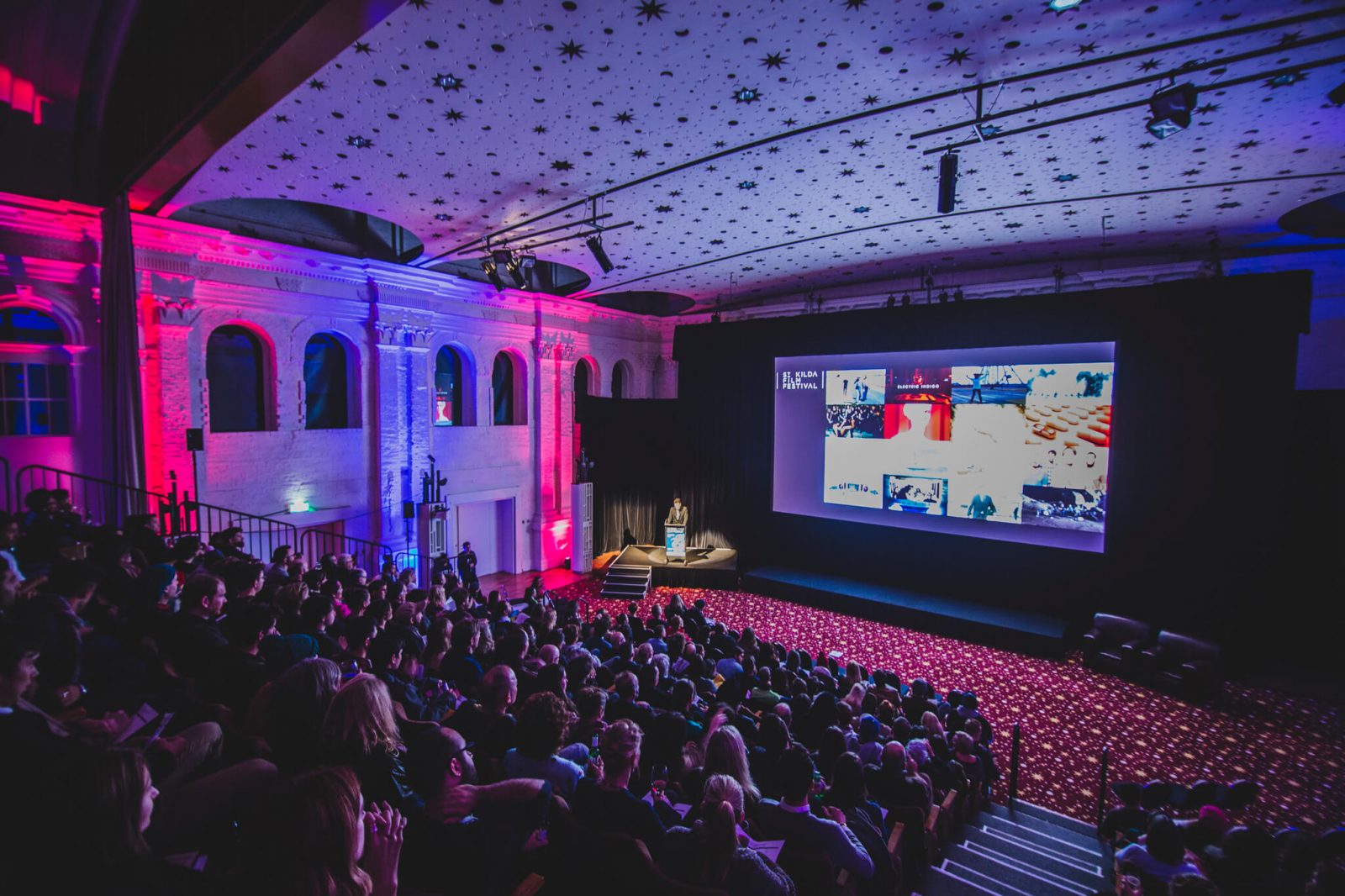A community event at its core, this year’s St Kilda Film Festival is dedicated to giving back to the Australian screen industry at a time when it desperately needs support.
Like many festivals and events that have been able to push ahead despite COVID-19 restrictions, this year’s St Kilda Film Festival is going to look a little different. Re-imagined as a digital event, SKFF 2020 will be entirely free to access nationwide.
This year marks respected figure in Australia’s screen culture sector, Richard Sowada’s first leading SKFF as Festival Director. While a digitally streamed event wasn’t what he had in mind when assuming his new role, he admits it was his prerogative from the get-go to shake things up this year.
Although he has been thrown into the deep end, Sowada and the SKFF team have maintained the mindset of, “Let’s just do it, let’s keep going and rethinking and reinventing.” Rather than throwing in the towel, he is utilising the current circumstances as an opportunity to think creatively and experiment with the festival format.
“Being able to have the opportunity to create in a different way and to think about things in a completely different way, that doesn’t happen very often,” he says. “A lot of businesses and festivals have been thinking in the same way for a very long time and it’s very hard to break out of that way of thinking.”
“If there’s any good thing about what’s happened over the last few months, it’s that it’s forcing people to think about what they do in a different way and embrace a different way of doing things,” he adds.
While the SKFF team have persevered against every obstacle they’ve encountered in bringing this year’s festival to fruition, the process hasn’t been without its challenges. Navigating an audience-based event while one step removed from the audience has been amongst the most difficult barriers to overcome.
“You miss the opportunity to look people in the eye and rip their tickets and get a real physical sense of their understanding of what it is that you’re doing, that’s the truncated bit that you really have to use a different kind of sense to ascertain,” says Sowada.
“It’s just not a matter of putting stuff online and saying, ‘I hope you enjoy it’. There’s a whole other measure that you have to invent.”
For both the team behind SKFF and City of Port Phillip who present and produce the festival, the main objectives were to support the industry and give back where possible.
Not only did this mean sidestepping any form of paid ticketing system to allow free access for viewers, City of Port Phillip immediately sprung to action when restrictions began impacting creative industries and refunded entry fees to all filmmakers who submitted works for this year’s festival.
SKFF is also paying a screening fee to all filmmakers showcased at this year’s festival who submitted their films through the call for entries – something that is unheard of, even for major international film festivals.
“It was like, ‘How can we best continue to platform these works and support the filmmakers in providing a voice and an ability to have their ideas seen and discussed,” says Sowada.
“Because films, they really have a year on the film festival scene and many of these filmmakers, if not most, have been living with these films for, probably, years. For us not to work as hard as we possibly can to let them have that moment would be the wrong thing to do.”
Aside from its digital format, the main difference for this year’s festival is that Sowada has curated SKFF mainstay, Australia’s Top 100 Short Film competition, into themed sections spanning comedy, coming of age and documentary. He believes that this allows the films to interact with one another as if they are all chords within a song.
“Putting them together in that kind of way creates a journey for the viewer within the individual program containers,” he says. “When you put them together, you do see a flow and a meaning between all of the containers, which takes the audience, I like to think, on a really great journey through contemporary Australian cinema.”
While Sowada is hesitant to nominate his highlights for this year’s program – an exercise he compares to having to kill his babies – he is especially excited to screen the works of Indigenous activist Gary Foley and acclaimed director and screenwriter Jane Campion.
“In a physical realm when we were doing the event, I was looking at an activist element in the program and I was wanting to screen a number of films from the early ’70s on 16mm and have this whole advocacy and protest culture type thing, but that wasn’t to be.
“The closest we’ve got is working with Indigenous activist Gary Foley who, in his early youth in filmmaking, was making some great experimental films,” he says.
“We’re also streaming some early short films from Jane Campion who was a film student at the AFTRS and they’re incredible too, she had some of her student films streaming at Cannes Film Festival and winning awards there which is just like, a whole other stratosphere for student filmmakers. I learnt a lot about her just from watching those movies, so including that in the program is a really great honour.”
Above all, Sowada is grateful for the opportunity to highlight contemporary Australian film in an eclectic program that’s moving, provocative and will, at times, make you think, ‘what the fuck?’.
“It’s not just the random thing of, that’s a good movie, that’s a good movie, that’s a good movie, it’s what does this thing mean? I think when you put that kind of rigour behind programming, audiences really see that level of sophistication and it makes the films shine in a different way.”
St Kilda Film Festival is happening from Friday June 12 until Saturday June 20 via the SKFF website.
Never miss a story. Sign up to Beat’s newsletter and you’ll be served fresh music, arts, food and culture stories five times a week.

